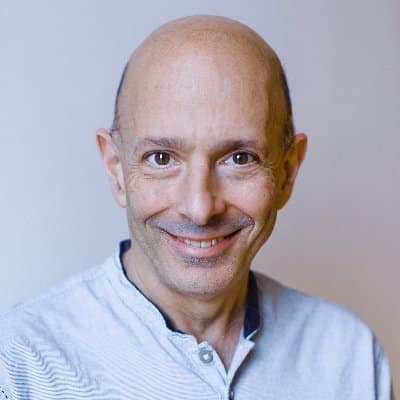
Dr Joshua Brickman
Professor of Stem Cell and Development Biology, Novo Nordisk Foundation Centre for Stem Cell Medicine (reNEW)
- 10:30
- S1, 16 Rainforest Walk, Monash University Clayton Campus
- Professor Peter Currie
Even if its just in your wildest dreams, transcription factors safeguard them, projecting future developmental fate and recalling lineage history
Abstract
Plasticity in early embryonic populations and stem cells explains both differentiation competence and regeneration. How is plasticity supported? I will discuss different stories that emphasize a common theme, that plasticity and cellular memory is supported by transcription factor occupancy. We found that the binding of conventional sequence specific transcription factors (TFs) is often insufficient to promote transcription of the genes in their vicinity, but that changes in actual transcription are a response to alterations in signaling. As a result, TFs can be seen as competence factors for lineage specific differentiation organizing enhancer networks for response to different signals. Moreover, when differentiation begins, the majority of sequence specific TFs remain bound at their ‘former,’ targets, where they preserve plasticity and reversibility. In the instance of early mammalian development, the final of the three blastocyst lineages to be specified, the Primitive Endoderm (PrE), but despite PrE being last, we find that fully specified isolated PrE is sufficient to regenerate entire embryos and in fact born mice. As with differentiation, it is the expression of specific TFs, or their persistence of them at a protein level, that sustains multiple enhancer networks in these cells, enabling PrE to reconstruct a complete embryo in the presence of appropriate signaling.
Bio
Following a brief foray into the music industry as both a DJ and journalist, Josh Brickman has focused on the transcriptional basis of cell fate choice in development and differentiation. He did his PhD with Mark Ptashne and post-doctoral training with Rosa Beddington. In 2001 he started his own group at the Institute for Stem Cell Research, University of Edinburgh, where he held both a Wellcome Trust and MRC Fellowships. In 2011, Josh relocated to the Novo Nordisk Foundation Center for Stem Cell Biology (DanStem), at the University of Copenhagen, where he was made Professor of Stem Cell and Developmental Biology. In 2022 he joined the NNF center for Stem Cell Medicine (reNEW), where currently leads a research group focused on understanding the mechanisms that give rise to transcriptional heterogeneities, how gene regulatory networks explain lineage competence in stem/progenitor cells and how these networks are translated into lineage commitment in the endoderm. As a result of new programs developed as a part of reNEW, he also seeks to exploit the principles of transcriptional regulation to better promote high fidelity human pluripotent stem cell differentiation and develop new models for early embryonic development.
